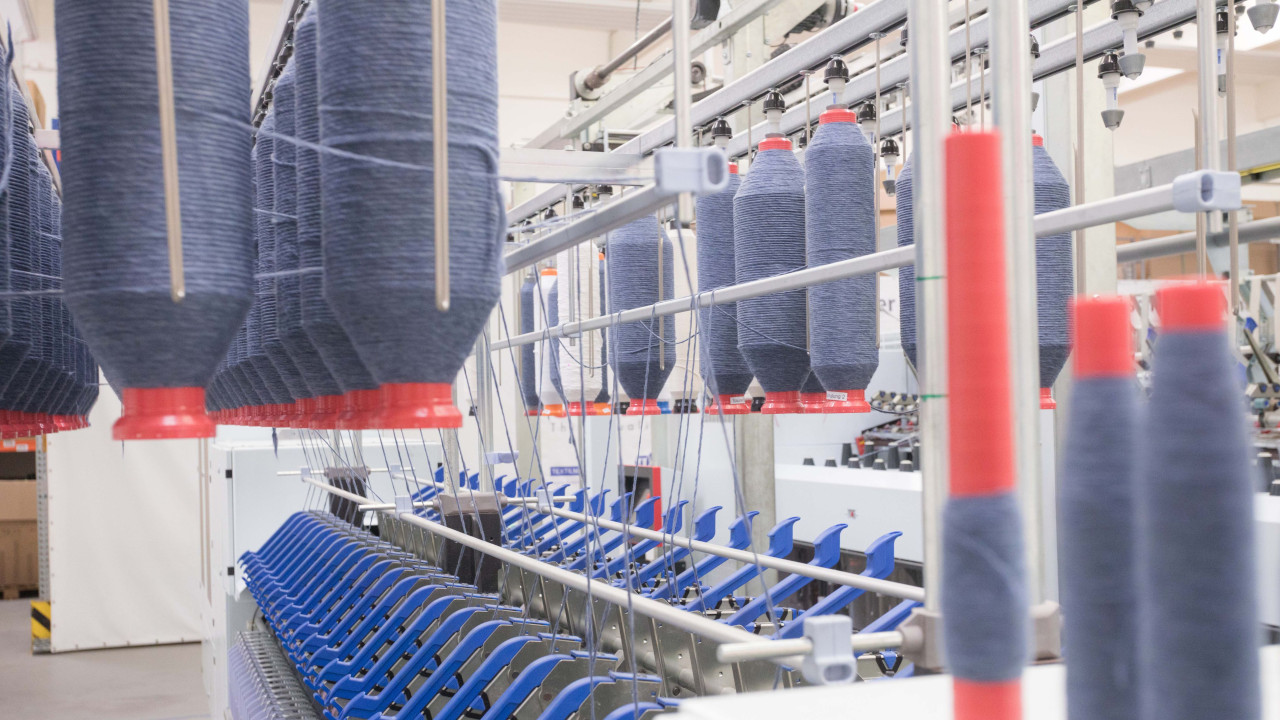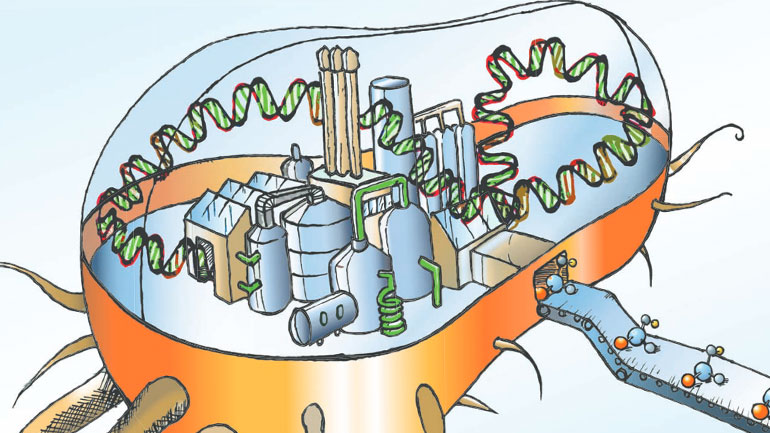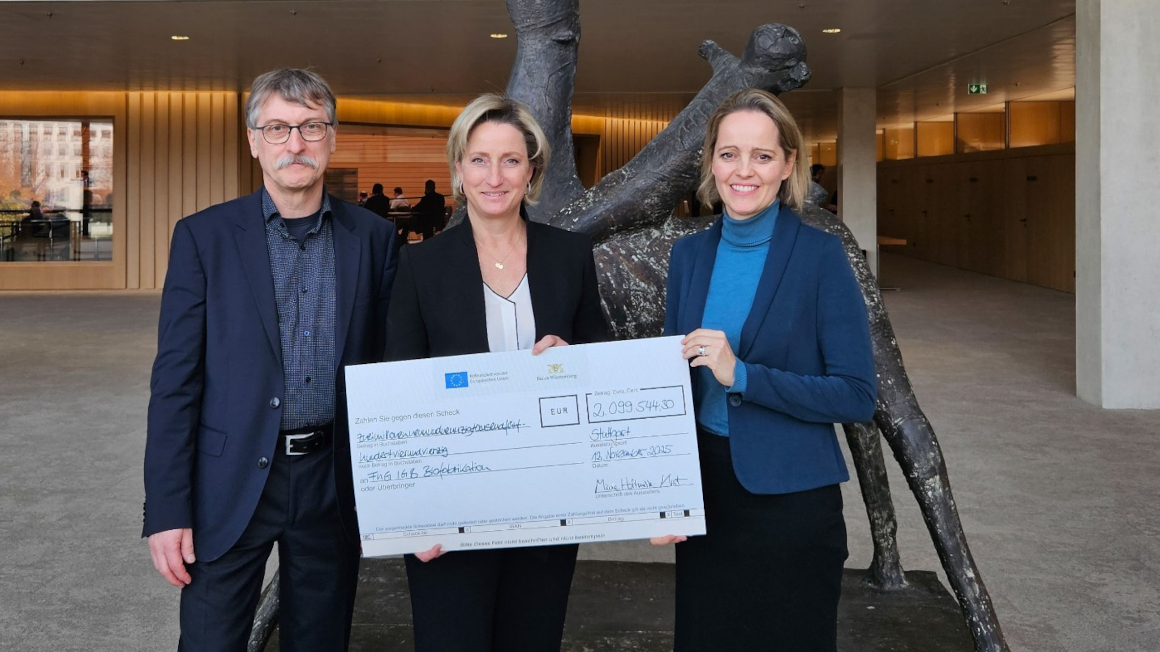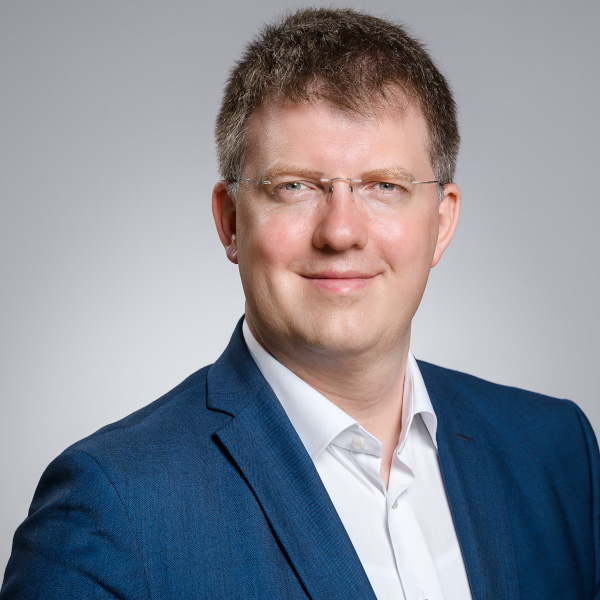DATI innovation communities
Of the 20 innovation communities selected as part of DATIpilot, two are focussing on innovations in biotechnology and one on textile recycling. The consortia are being funded by the BMBF with up to 5 million euros.

Bringing more good ideas into application and thus to companies and people: As a new component of its transfer and innovation promotion programme, the Federal Government intends to promote social and technological innovations in the future by setting up the German Agency for Transfer and Innovation (DATI). As an innovation agency, DATI will be based in Erfurt.
DATIpilot: Sprints and communities
In July 2023, the Federal Ministry of Education and Research (BMBF) launched the DATIpilot funding guideline, which is a pilot measure preceding the establishment of DATI. It supports innovative ideas for transfer projects in the various regions of Germany. DATIpilot met with great interest right from the start: Almost 3,000 project outlines for innovation sprints (Module 1) and 480 applications for innovation communities (Module 2) were received.
An innovation community connects scientific institutions – HAW, universities or research institutions – as well as stakeholders from business, society and administration on a specific innovation topic. The aim of the community is to strategically establish or expand research and transfer activities on this topic and to establish the necessary partnerships.
We are looking for research-based innovation communities with high innovation potential and recognisable unique selling points in their topic that want to give a significant boost to the development of their community with new approaches. Communities are characterised by an open partner structure, open innovation approaches and a high degree of self-organisation.
Almost 500 project ideas submitted
An innovation community receives a maximum budget of 5 million euros from the BMBF, which can be used over a period of four years. 480 outlines were submitted for the three-stage selection process. An independent jury of twelve experts from science, industry and society assessed and evaluated around 80 of the most promising outlines and ultimately recommended 20 innovation communities to the BMBF for funding.
These included three alliances that are relevant to the bio-based economy. The three innovation communities with relevance for the bioeconomy in a compact overview (external links only available in German):
BioBlock - Blockchain for biotechnology
BioBlock: The aim of BioBlock is to establish a secure and democratic knowledge exchange platform based on fragmented data and blockchain technologies in biotechnology. This way, transfer and innovation are to be promoted with the help of verifiable and usable FAIR data. The platform is intended to build trust, promote collaboration and support the principles of open science in order to revolutionise research and development in the bioprocess industry. The plan is to demonstrate the potential of BioBlock in the fields of bioengineering for the circular bioeconomy and biopharmaceuticals.
Participants: Technische Universität Berlin (coordinator), Siemens AG, Sartorius Stedim Biotech GmbH, Institute for Applied Blockchain (IABC)
Circular Textiles - Textile circular economy
CirTex: The aim of Circular Textiles is to develop technological and social innovations and sustainable solutions for a complete textile circular economy. The focus is on the complete recycling and value chain of textiles: from production, purchase and use to the collection of used textiles, their sorting and recycling and also the processing into fibres as new textile raw materials.
Participants: Augsburg University of Technology (coordinator), Forschungskuratorium Textil e.V.; TEXAID Beteiligungsverwaltung Deutschland GmbH, hessnatur stiftung
VIVET - Innovation in der Verfahrenstechnik
VIVET: The "Association for Innovation in Process Engineering Chemical and Biotechnological Process Development 4.0 - VIVET" is striving for a paradigm shift in chemical/biotechnological process development, which should lead to significant decarbonisation and sustainable production processes.
Participants: Mannheim University of Applied Sciences (coordinator), RPTU Kaiserslautern, BASF SE
pg


